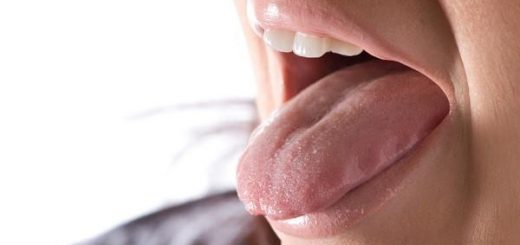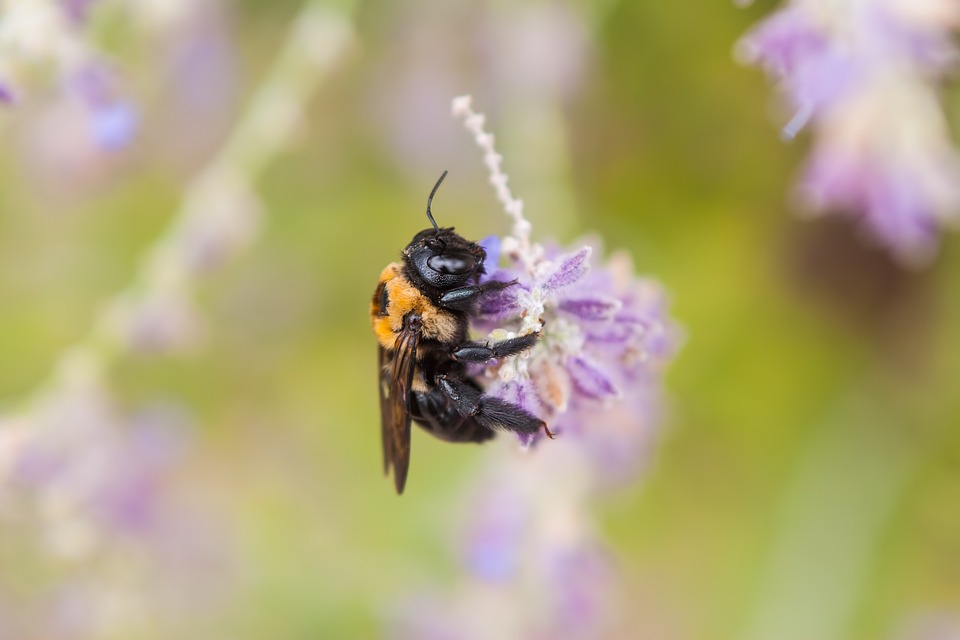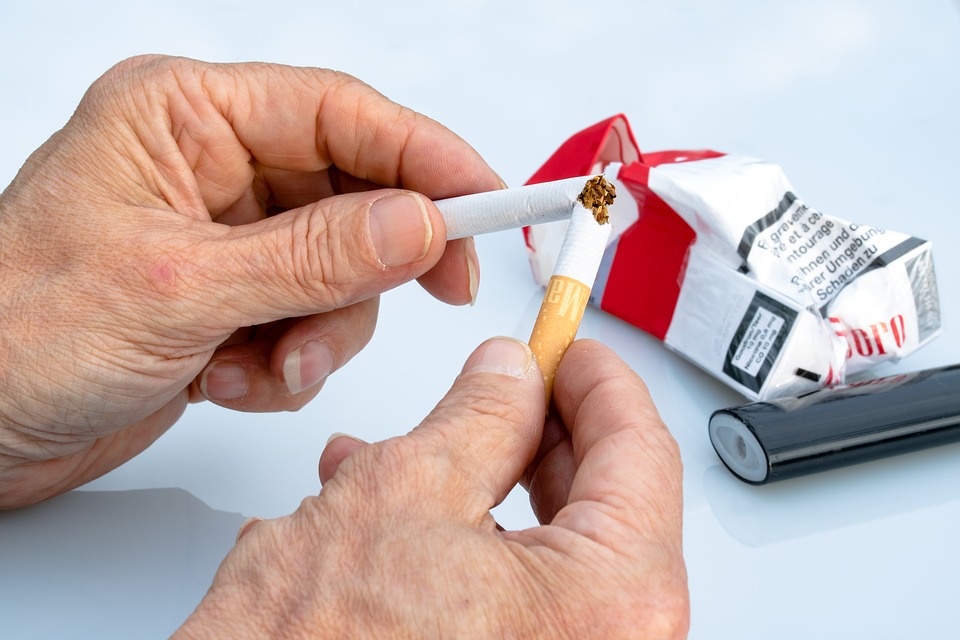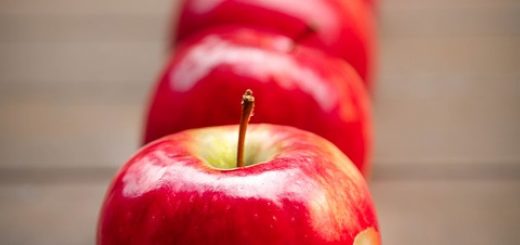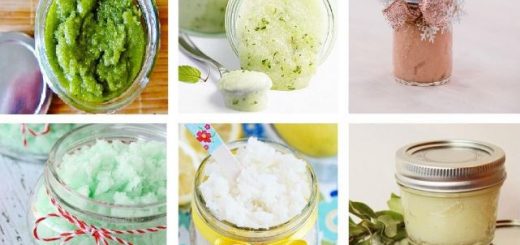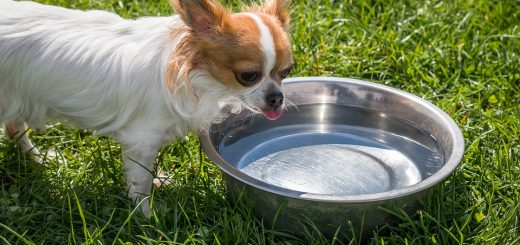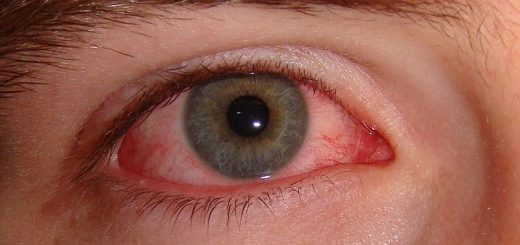34 Home Remedies for Symptoms of Bipolar Disorder
Bipolar disorder is a condition that can affect your moods. It is sometimes referred to as bipolar affective disorder. This is a very serious, long-term condition where you can occasionally experience highs and lows, periods of depression, or what is known as hysteria or hypomania.
Treatment for this condition is usually anchored on “mood stabilizers” to maintain and keep your mood within normal limits or safe thresholds. Other medications involve lithium, anticonvulsants, and antipsychotics. Psychological therapies may also help with this condition and this might involve talking to a trained psychologist.
There are some home remedies that may be able to help the mood swings that come with bipolar disorder. It should be noted that these home remedies are things that you should go along with medical treatment and medication, not in lieu of treatment.
Although the remedies listed below are natural remedies to assist dealing with bipolar disorder, it is crucial to ask your doctor’s advice or a consultation with a medical herbalist before trying any of these remedies, these natural remedies may interfere with certain medication or may not be appropriate for some circumstances.
Home Remedies for Bipolar Disorder Symptoms:
-
Vitamin B Complex
Vitamin B complex involves taking a number of B vitamins together, each single vitamin B works more effective. It’s advised to take B vitamins as a Vitamin B complex. You can also take in the various B vitamins naturally by eating foods that contain B vitamins.
-
Massage
Massage therapy promotes relaxation and relieves anxiety, stress, and depression; this helps the treatment of bipolar disorder. It also affects your neurotransmitters and hormones. You can have your body gently massaging the body regularly by using traditional massaging techniques or by a professional masseur. Consider therapeutic procedures such as acupuncture or oil steam therapy. Massage can also help with other disorders that are triggered by stress or depression, like anorexia.
Note: Massage Therapy is not recommended for patients who are unstable suffering from bipolar.
-
Licorice
Licorice can assist with bipolar disorder and can serve as an antidepressant. Patients suffering from bipolar disorder can drink licorice tea on a regular basis. To make licorice tea at home, add a teaspoon of a dried licorice root to a cup of hot water. Allow for it to steep for ten minutes. Strain the solution and drink.
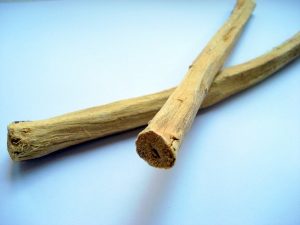
Licorice root
-
Keep Routines
During this time it’s crucial to keep a regular routine, such as eating and sleeping at the exact same time every day. If needed write down your schedule every day to make sure that you keep on it.
-
Sleep
Two of the most common symptoms of bipolar disorder are exhaustion and anxiety. Try to ensure that your schedule includes enough time for a proper amount of 7-8 hours sleep. Allowing your mind to work in coincidence with the use of nervine agents and other behavioural approaches, this will make your condition have less “weak spots” to come through and have a harmful effect on your life.
-
Eat Regularly
Try avoiding skipping meals as it may aggravate your mood. Try to eat at least three meals a day, with snacks in between.
-
Exercise Regularly
This is crucial for your mental as well as physical health. Try engaging in activities such as walking or gardening to relax the mind and exercise the body. If you are feeling up to it, you can also try using workout videos.
-
Yoga
Engaging in yoga helps exercise your breathing and helps break the negative thinking patterns. If you are not physically fit enough to do yoga, then trying meditation can have similar effects on the mind.

A woman practicing yoga
-
Avoid Caffeine and Alcohol
Try and avoid drinks such as alcohol and caffeine. Alcohol is a depressant, and caffeine is a stimulant, so it is best to avoid both of these. Drinks that commonly contain caffeine are energy drinks, soda, coffee, and some teas.
-
Watch for Triggers
Keep a journal to help detect the cautionary signs that signal and turn you into depression. This is also a great tip to keep in mind if you are trying to find triggers for any other health problem that you may have.
-
Support Group
Having bipolar often affects not only the patient, but also the patient’s family, friends, and loved ones. It is advised that they find a support group and take care of each other’s well being to reduce stress.
-
B Vitamins
For patients suffering from bipolar disorder, B vitamins can be beneficial because they assist in controlling the mood. Vitamins such as B1, B6, B9, and B12 are particularly crucial as they can help to decrease symptoms such as anxiety, depression, and fatigue.
Vitamin B12, also known as thiamin, assists to improve blood circulation in the brain and body. B6, also called pyridoxine, can contest irritability. B9, widely known as folic acid, is crucial as it maintains the function of the brain and manufactures of key brain chemicals.
-
St. John’s Wort
This widely popular antidepressant and anti-anxiety home remedy that helps treat minor to moderate depression and anxiety. St. John’s Wort also affects various brain elements. However, patients suffering from bipolar disorder are recommended to take this herb only after consulting with a doctor as it can trigger hysteria. It also tends to affect a large number of prescription medications, including birth control pills.
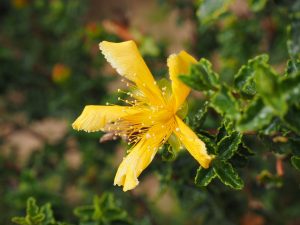
St. John’s Wort flower
-
Ashwagandha
Ashwagandha works as a nervine tonic to help improve the symptoms of bipolar disorder. According to a study by the University of Pittsburgh, in 2013, it found that sensorial, an ingredient in Ashwagandha, could improve three separate thinking in patients suffering from bipolar disorder, as it can assist with auditory- verbal working memory, response time, and social understanding It is advised that patients take 500 mg standardized extracts of Ashwagandha root and leaves regularly for several weeks. Of course, you should talk to your doctor before you begin taking this home remedy.
-
Fish Oil
Fish oil is a major source of omega -3 acids and has been deployed for the treatment of individuals who have symptoms related to bipolar disorder. The presence of vital nutrients in fish oil spurs a hormonal balance that is healthy for nerve tissues maintenance and general wellbeing.
This is in addition to the functionalities that helps in brain functions and works against depression. The use of fish oil is recommended after consulting your Physician as a result of possible contraindication with existing dosage of medications.
Meals that supply fish oils in rich quantities like salmon, tuna, trout, and herring are highly recommended.
-
Chamomile
Chamomile tea is a good herbal remedy for calming down during a hysteria phase. This herb contains adaptogenic properties that can reduce your body’s anxiety and stress levels. Chamomile is effective in healing the mind and can lead to improvement of both depression and hysteria in a person diagnosed with mental disorder. This herb can be safely taken with many other medications, however pregnant or lactating woman or persons who are allergic to flowers such as Ragweed and Aster should not take this herb.
- Valerian Root
Valerian Root has natural sedative agents that encourage calmness and helps individuals recover from bouts of anxiety and depression. For those who have sleeping disorders, this forms a good front in combating such ailments.
It can be accessed in liquid, capsule and tea bag forms in addition to the raw root forms. Mood disorders and sleep problems count among the ailments that this remedy provides an immediate respite from when used regularly.
-
Brahmi
Brahmi, also known as Bacopa, opens an active front against bipolar disorder. It works by working as a sedative so that memory can be improved and mental strain relieved. Serve the remedy in measured teaspoons for a few weeks using the juice produced from the leaves. Alternatively, the oils can be used for a tender head massage to produce calmness that will soothe the patient
-
Magnesium
Magnesium works in close semblance to lithium and is a healthy alternative as it possesses little or no health risk to users. It is good for sleep enhancement and can conveniently eliminate hysteria and when in low supply, it can lead to anxiety and spells of anxiety. Magnesium levels get a blow when you are under stress and dampening high work volumes. You can use it as follows: Orally as meal supplements or by eating lots of foods like pumpkin seeds, spinach, cashews, and soybeans.
-
Lavender
This herb’s oil is very effective for giving a soothing relaxing massage. Lavender oil is a very sweet-smelling fragrant and can ease stress and anxiety for patients suffering from bipolar disorder.
This oil can also eradicate insomnia and restlessness experienced by patients identified with bipolar. Lavender oil can be placed into a steamer along with hot water to accompany it.
This herbal oil can even be used in some other alternative ways. You can also add a few drops of lavender oil in your bath and use it to ease the tension felt by bipolar patients.
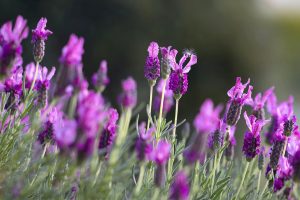
Lavender flowers
-
Ginseng
Depression is often correlated with exhaustion or fatigue, which can make it extremely hard to maintain a normal life, hold a job, or engage in social interactions. Ginseng is an energy boosting substance and the supplemental form of this vital herb is very accessible around the world. When your energy is boosted you tend to feel for able to do things, get out of the house and engage normally. Take ginseng supplements as directed on the bottle.
-
Passion Flower
Passionflower, like Valerian root, comes with a range of sedative properties for the reduction of impulsiveness and anxiety. It can eliminate insomnia and is not reputed for side effects apart from possible stomach upset. Use a teaspoon serving of passion flower by immersing in a cup of hot water. Strain after 15 minutes. Once this beverage is cooled, you can drink it a couple of times a day, as needed.
-
Black Cohosh
This popular herb is also referred to as black snakeroot. It’s well known to suppress the nervous system and prevent hysteria episodes. It is commonly used as a sedative, in controlled quantities. It can also assist to balance the mood swings and behavioral and social issues that bipolar patients frequently experience.
-
Ginkgo Biloba
This herb is commonly recommended for those suffering from bipolar disorder, as a way to balance mood and correctly control element pathways that affect the brain. However, the neurological effects of Ginkgo are still at the center of debate. However, it has been shown to improve blood flow to the brain and protect against intellectual impairments in the case of Alzheimer and dementia.
-
Lithium
Traditionally doctors prescribed Lithium to reduce the effects of bipolar disorder, however, dosage and diagnosis errors were often made. However, naturally, you can benefit from lithium in various foods such as mustard, pistachios and dairy products. Lithium has shown to reduce the hysteria episodes from those suffering from bipolar disorder. Its considered healthier when retrieved naturally.
-
Anticonvulsant Medicines
Anticonvulsant medicines are commonly used to treat epilepsy but have been found to be effective in bipolar disorder too; however, it is not how exactly they work in this condition. Sodium valproate, carbamazepine, and lamotrigine are used to treat episodes of hysteria. These medications can also be used over a long period of time as mood stabilizers. In some cases one of these medicines is used alone, some patients take an anticonvulsant in addition to lithium if the lithium is not effective enough. Ask your doctor if these medications could be right for you.
Note: Women who can get pregnant, or women who are already pregnant, do usually not use Sodium Valproate; this is because there is a significant chance that it could harm a developing baby.
-
Attitudinal Safeguards
Consider putting some sort of precaution on your money so that you cannot overspend if you are on a high. For example, if you are married, consider putting your bank account in the name of your partner.
-
Flaxseed Oil
This plant contains Omega 3 essential fatty acids in the herb this can help to release anxiety-controlling instruments in the human brain. Flaxseed oil can be used to relieve the tension and mental symptoms experienced by patients with bipolar. Flaxseed oil also contains alpha-linolenic (ALA) , which is transformed into docosahexaenoic acid (DHA) and eicosapentaenoic acid (EPA) which is as helpful as fish oil supplements in soothing the mind and easing battling thoughts faced by patients during the hysteria stage of this condition.
-
Catnip
For thousands of years, Chinese herbalists used catnip tea to reduce the symptoms of colds and coughs. Catnip tea can also ease the pain of a toothache. In the sixteenth century herbalists in America have used this herb for its mood stabilizer and mood controlling properties it possesses. It also contains substances known as nepetalactone isomers, which is said to calm the mind and reduce anxiety in patients during the hysteria phase of this condition.
These chemicals may also assist diminish sleeplessness. You can also drink Catnip tea to relax your nerves and calm yourself during hysteria stages experienced in bipolar patients.
-
Rhodiola
Rhodiola Rosea is a remedy that has been deployed over the years for stress management. It does not necessarily constitute an antidepressant but provides a significant mood-life for people who are caught in any depression milieu.
This remedy is a good go-along for anyone already on anti-depressants.
-
Light Therapy
Patients with bipolar disorder may have interrupted day rhythms, which mean their daily biological clock is not functioning properly. There are a number of strategies in place which may help to reset this internal clock and improve bipolar management. From a research review published in 2012 in Dialogues in Clinical Neuroscience-these strategies include timed exposure to stages of light and darkness and a mandatory change in sleep times. It is advised that you discuss these or similar strategies with your doctor before you try them.
-
Education
Try and learn more about your condition. It has been proven that if you are thoroughly informed about the early stages of hysteria, this means you are more likely to seek help and treatment which can assist in preventing a major hysteria episode developing. Ask your doctor or your psychiatrist to teach you more about your condition and when to seek help.
- Kava
Kava, also known as Piper methysticin, is an herbal remedy linked with traditional drinks in south pacific island nations such as Fiji and Hawaii. This remedy is popularly known in the United States for its anxiety-easing qualities. Kava may calm the brain by increasing the quantity of GABA (Gamma Aminobutyric Acid) neurotransmitters, which supports in controlling hysteria in a patient suffering from bipolar. It prevents thoughts from spiraling without any control during the hysteria phase of the condition. Kava also calms depression and mental anxiety in bipolar patients.
The tea is brewed gradually from the leaves of this herb and is used as an herbal remedy. You can also use the leaf to make a salad for recovering from symptoms of bipolar disorder.
- Meditation
Meditation is also a great treatment for patients suffering from bipolar. People who exercise mediation using a managed mindfulness-based mental therapy may experience a decrease in depression depending on the length of their meditation.
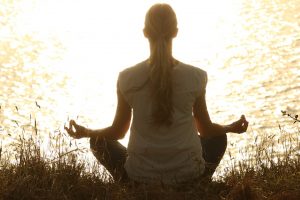
A woman meditating
Do you know any other home remedies or tips for people who are struggling with symptoms of bipolar disorder? If so, comment below.
References
http://www.everydayhealth.com/bipolar-disorder/alternative-treatments-for-bipolar-disorder.aspx
http://www.health.com/health/gallery/0,,20475967,00.html
http://www.bipolar-lives.com/natural-treatments-for-bipolar-disorder.html
http://www.everydayhealth.com/bipolar-disorder/bipolar-treatments/herbs.aspx
http://www.bipolar-lives.com/natural-treatments-for-bipolar-disorder.html

